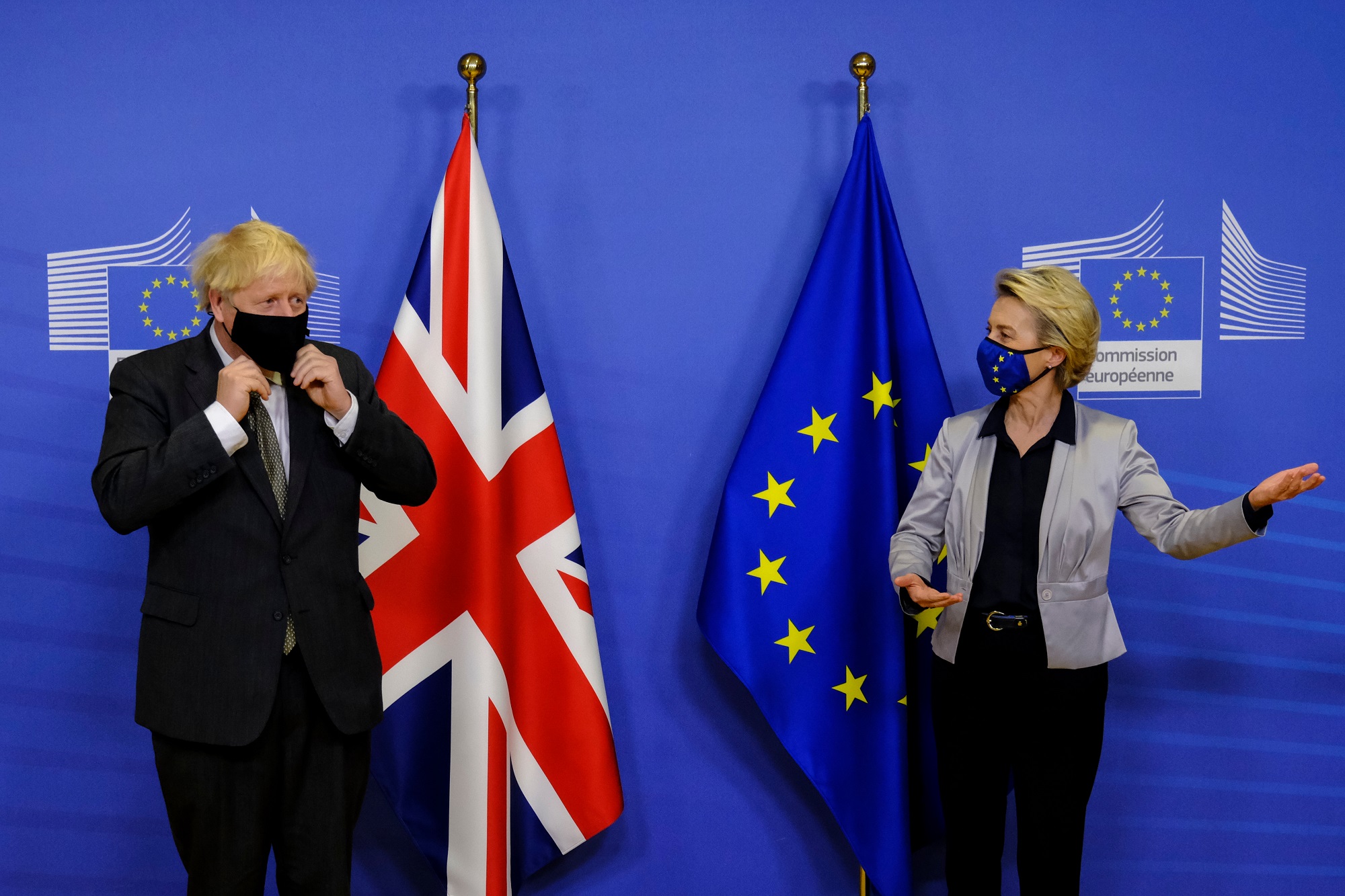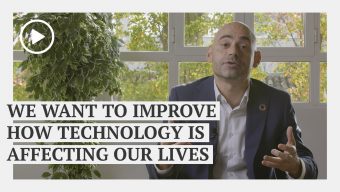After four and a half years of talks that have brought down governments and convulsed markets, Brexit finally became a reality on January 1. Although the shape of the UK’s departure from the EU after 47 years has been agreed upon, the two sides will continue haggling over the details of the first-ever exit of a country from the EU. Many warn that what was meant to be a one-time deal may actually become a “never-ending Brexit.”
Brexit ended up being “hard” rather than “soft”, since it opted for a limited future relationship between the former EU partners. Few concessions were made to the UK: no special access as yet for financial services, no automatic mutual recognition of professional qualifications, onerous new requirements to be able to export some goods, and rules of origin that may dismantle many manufacturing supply chains and distribution centers in the UK. EU fishermen retain about 75% of their fishing rights in UK waters. According to former prime minister Theresa May, Boris Johnson achieved a Brexit deal in time only by accepting nearly all EU conditions. “We have a deal in trade that benefits the EU, but not a deal in services that would have benefited the UK,” she commented.
Under the agreement, exported goods (but not services) will face zero tariffs in a new free trade area between Great Britain and the EU. Rules of origin mean that all goods traded must “originate” in the EU or the UK – have approximately 50% local content – to qualify for zero tariffs. In effect, this means that goods once imported to the UK for distribution in EU states such as Ireland, or products made in the UK with mostly imported parts, may face punitive tariffs unless they can prove that 50% of their content originates in the UK. Experts believe this will effectively shut down most UK distribution hubs and seriously harm supply chains.
UK companies, especially SMEs, are said to be largely unprepared for the high volume of paperwork they will now face to export to the EU. The extra red tape means higher costs, delays, a need to maintain larger inventories of inputs, and other adjustments. An example is animal products, which now must present veterinary certificates at the EU border; and the fish sector, which faces 28 new procedures before it can export to the EU. Some companies will find their exports turned back for noncompliance; others may opt not to sell in the EU to avoid the bureaucracy. Some economists believe that the “hassle factor” will have a large negative impact on UK productivity and growth.
In finance, where the City of London dominates the sector, Brexit talks are still ongoing and may reach agreement by March. For decades, London-based trading systems and banks dominated cross-border share trading: up to 30% of all EU shares traded on the continent passed through the City. Brexit ended “passporting”, which enabled City firms to access and service clients anywhere in the EU without having a physical presence there. The EU now refuses to recognize UK financial regulation as “equivalent” to its own, which will force much euro-denominated business back to the EU. The UK’s best-case scenario is to achieve more limited access, similar to Switzerland’s agreement for its financial sector. The EU is eager to reduce its reliance on the City and see finance jobs return to the continent, so an agreement that is generous to the UK is unlikely.
The jobs exodus from the City, however, may be less than initially expected. Far from the 232,000 jobs forecast to disappear from the UK financial sector after the Brexit vote, only about 10,000 City jobs have been lost since 2016. About 14% of the City’s banking assets have left, however (mostly to Frankfurt), which could mean the jobs exodus will continue. On the first trading day of 2021, when Brexit became a reality, €6bn of EU share dealing left London for other European facilities. London will still be attractive as a finance hub, possibly specializing in green finance or fintech, but the City, with its high salaries and tax revenues, is likely to shrink for the first time since Britain joined the EU.
The most difficult issue to be solved in Brexit, and the one that brought down May’s government, is the Irish border. Northern Ireland, part of the UK, shares a 499-kilometer border with EU member Ireland, which is the only land border between the EU and the UK (except Gibraltar, which has joined the Schengen agreement for free movement of people after Brexit). To end the violent period of the “Troubles”, when border posts were attacked by terrorists struggling to reunify the two Irelands, both sides agreed in the 1998 Good Friday Agreement to make their border invisible. Reimposing it would violate the accord, awaken memories of the years of conflict, and be opposed by Irish and Northern Irish alike.
The need to leave an open border between Ireland and Northern Ireland has complicated Brexit talks immensely. The solution finally reached was for Northern Ireland to stay in the single EU market for agriculture, food and goods, and to continue following EU standards on traded goods as part of an “all-island regulatory zone”. Trucks carrying goods will pass between Ireland and Northern Ireland without inspection. But as products cross the Irish Sea from Britain, both Ireland and Northern Ireland will apply EU customs rules and perform inspections to ensure EU safety and health standards are met.
In practice, this will mean a much greater presence of police and customs forces at airports and ports in Ireland and Northern Ireland, to enforce border standards without creating a visible land border. Dublin Port will have to handle new checks on some 900,000 UK cargo shipments a year (previously they handled only about 200,000 non-EU shipments a year, since UK shipments did not have to pass customs). New IT systems and infrastructure will be added to handle a much higher volume of non-EU trade. In the first days after Brexit became a reality, Northern Irish food suppliers found that the vast volume of new paperwork needed to process Irish Sea checks was causing them lengthy delays and leaving empty shelves in many supermarkets.
Ironically, losing Britain may mean a stronger Europe.
All of these practical, day-to-day considerations will affect jobs, employment, and GDP. The UK government calculates that the economy had lost growth equivalent to 4% of GDP since 2016, even before exiting the EU. A joint study by the London School of Economics and UK in a Changing Europe projected that over the next 20 years, the current Brexit deal would reduce UK GDP more than twice as much as COVID-19: -5% by the year 2040, a loss of 2000 pounds sterling for the average Briton.
The most important question is whether this protracted, costly departure from the EU gives Brexiteers what they voted for. “Leavers” wanted Britain to “take back control” rather than abiding by EU rules and regulations. But in order to clinch the Brexit deal, Britain had to accept EU requirements for a “level playing field”, meaning that it will not be allowed to gain competitive advantage by undercutting EU environmental, climate protection, or labor standards, or by subsidizing British firms. When he announced the agreement, Johnson stated: “The destiny of this great country now resides firmly in our hands.” But does it? Can Johnson fulfill his pledge to deregulate the UK economy and turn it into a “Singapore-on-Thames”? Philip Hammond, former chancellor for the Tories, says he does not expect that the UK will be allowed to make radical regulatory changes to transform its competitiveness. “That was always my concern – that we are buying a notional right to diverge, which we will not use, at a very high economic price,” he said. And all of this leaves aside the question of whether the UK will be able to stay together politically after Brexit, since support for independence from the pro-EU Scots is now at an all-time high.
With all of its costs, the Brexit deal was able to press pause on the battle between pro- and anti-EU factions in all leading parties, which has plagued British politics since the UK joined in 1973. The government is now free to focus on other pressing problems such as the pandemic, surging debt, and rising inequality. Brexit will prompt reflection on how the UK can better position itself in the world and gain a dynamism that Leavers said it had lost within the EU. Meanwhile, the never-ending Brexit is likely to become a permanent feature of British political and economic life.
From the EU side, losing Britain may actually make it easier to progress toward deeper integration without the constant challenges coming from one of its largest and most vocal (ex)members. Ironically, losing Britain may mean a stronger Europe. If the many costs of Brexit were someday to prompt the UK to ask Europe to take it back, it would not be a surprise if the EU’s answer were no.
© IE Insights.






